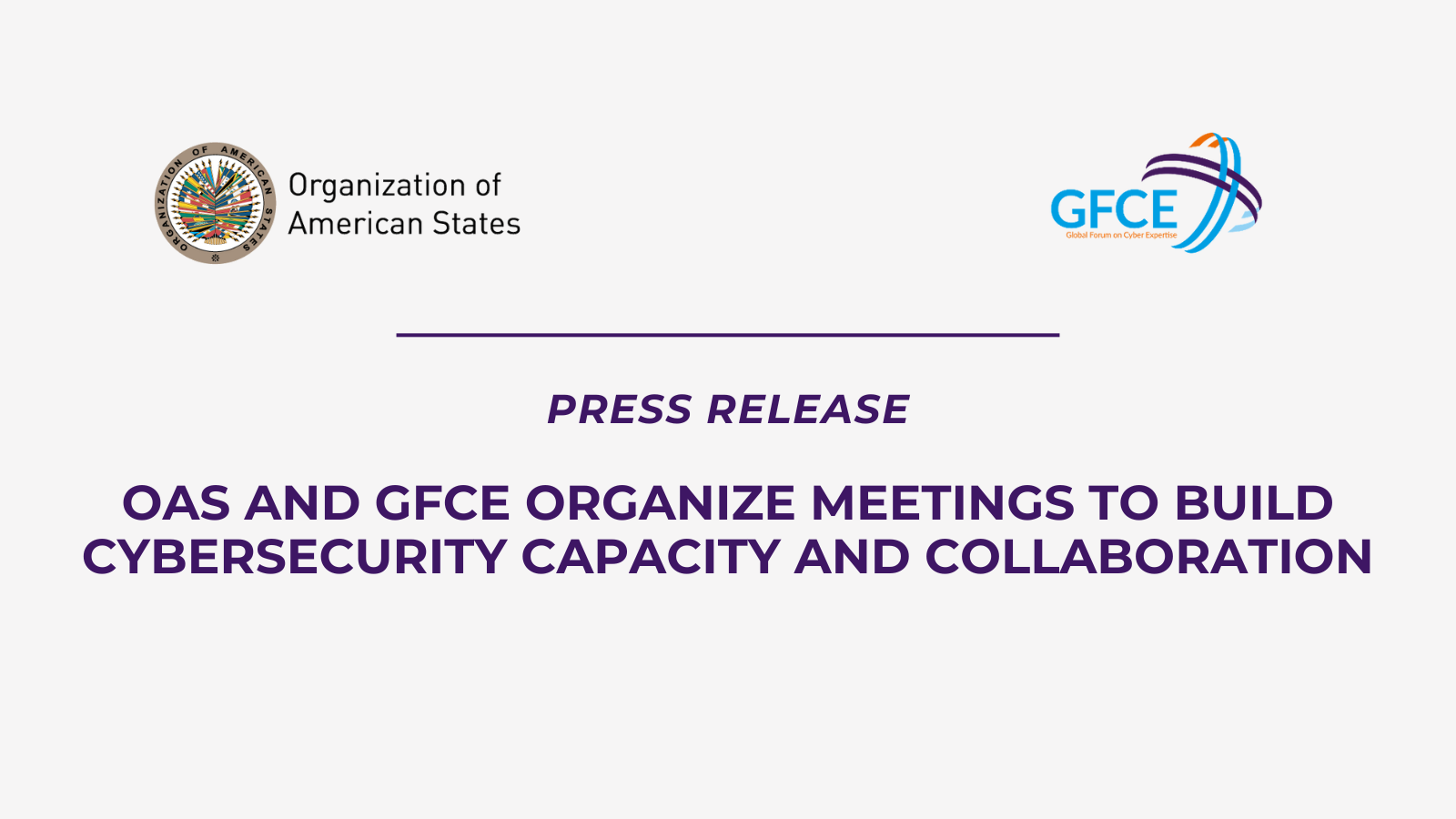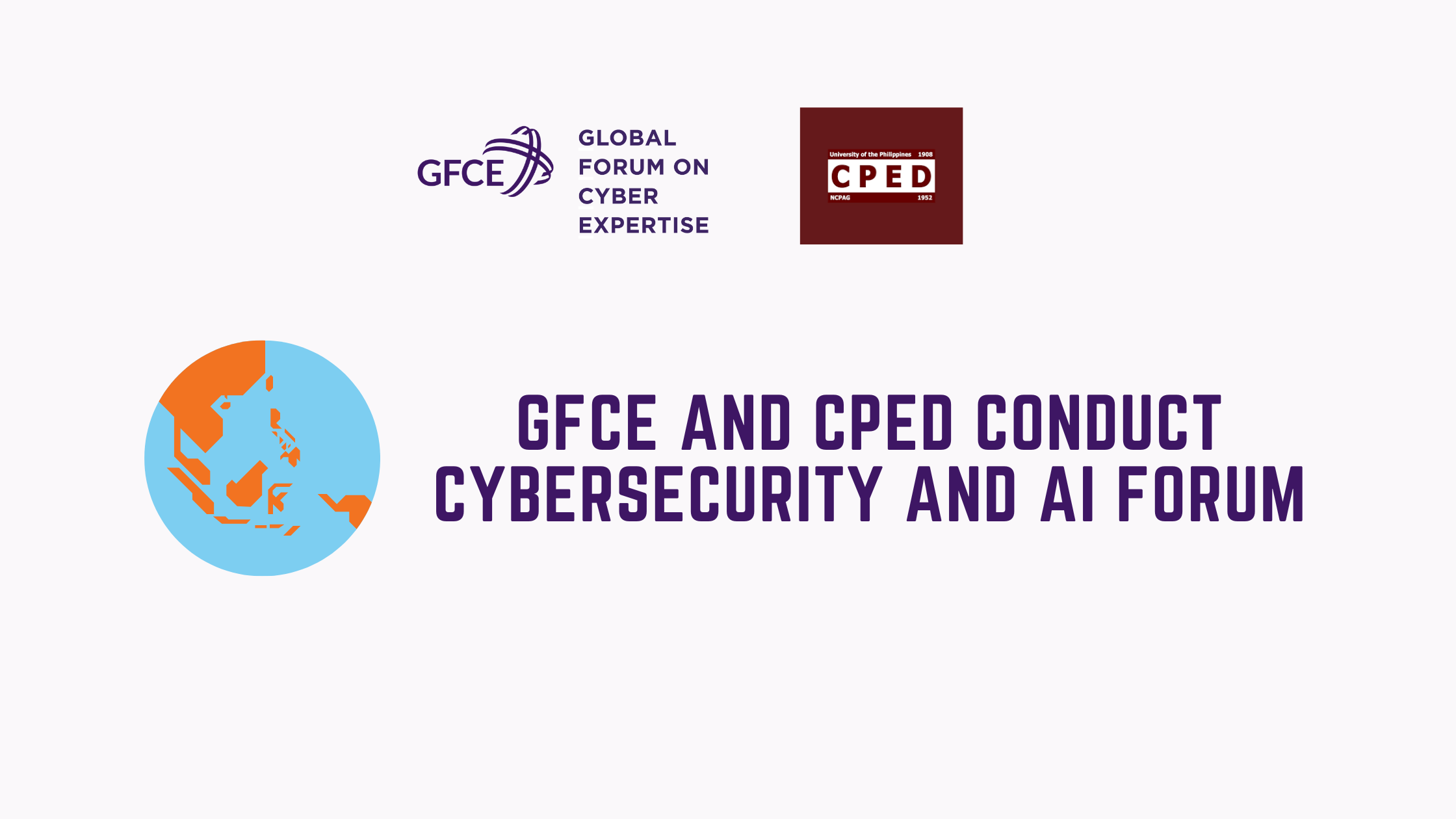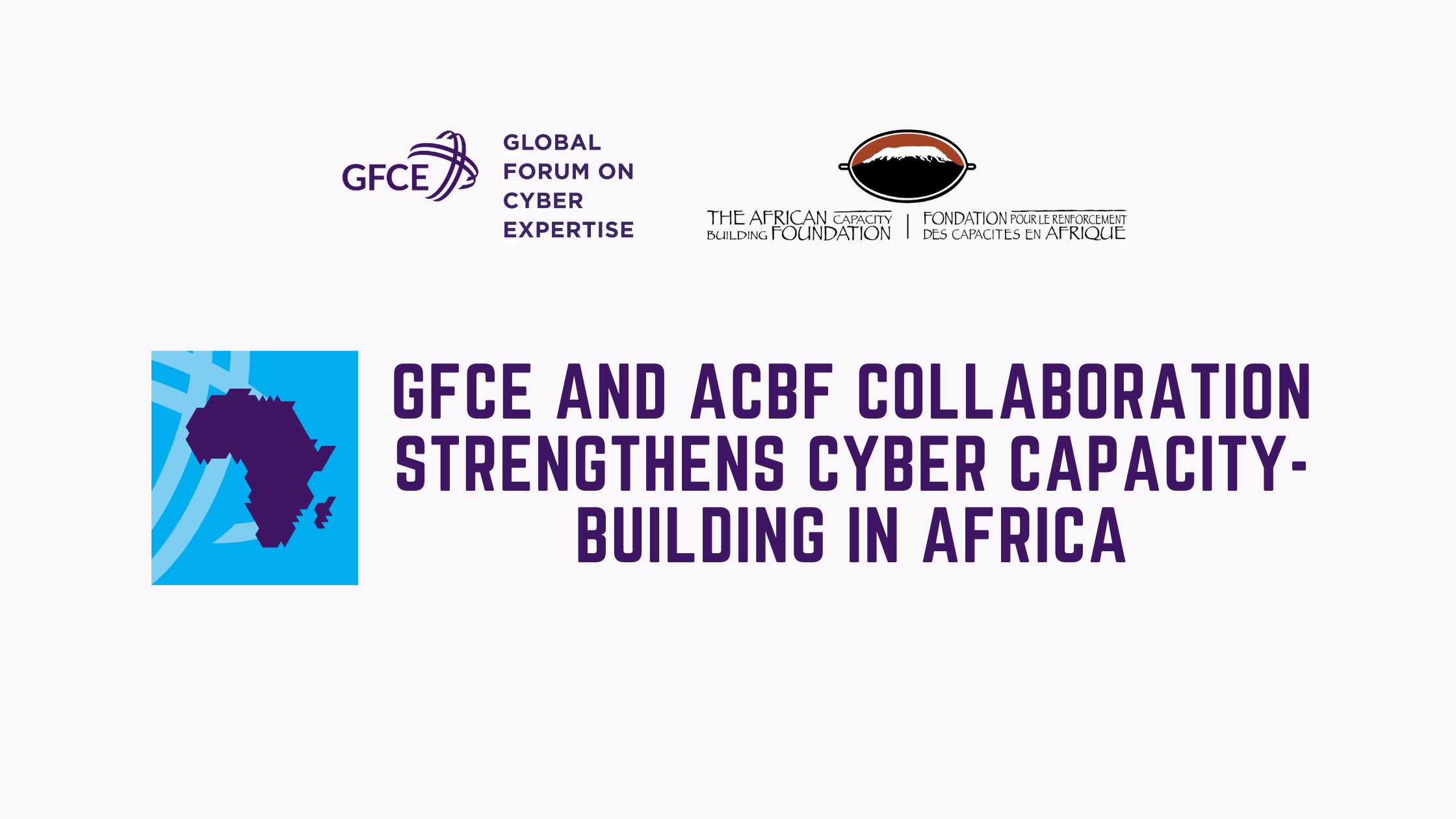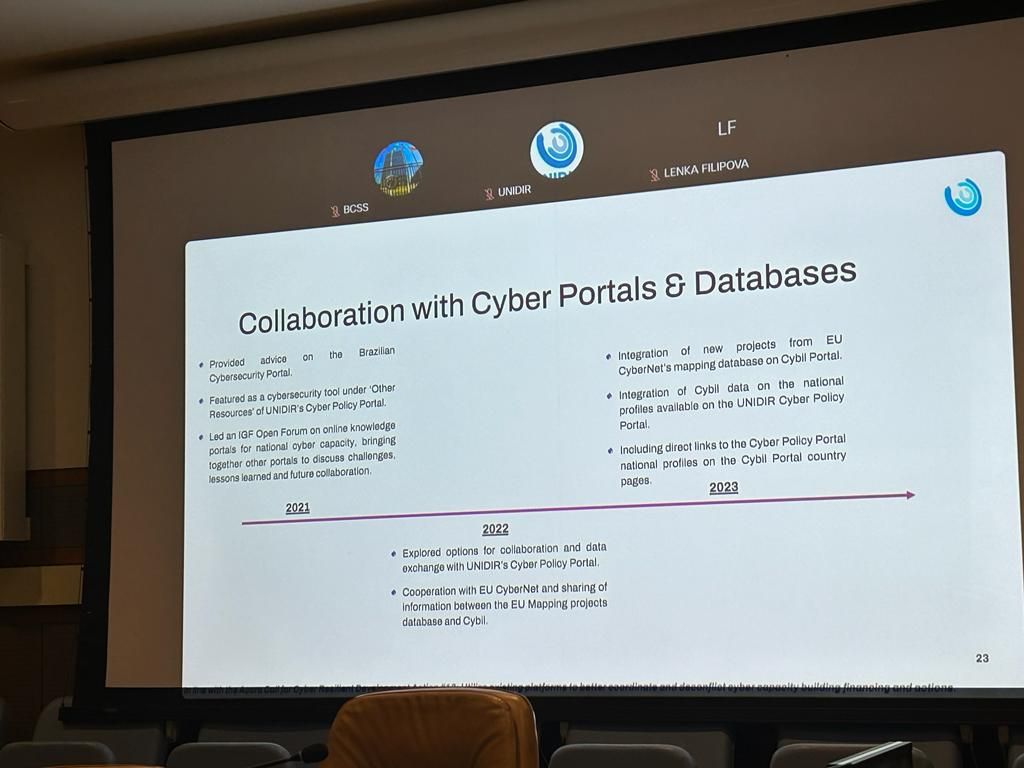OAS and GFCE Organize Meetings to Build Cybersecurity Capacity and Collaboration

Washington D.C., 5 September 2024 – The Organization of American States (OAS) and the Global Forum for Cyber Expertise (GFCE) will hold two meetings the week of September 9 focused on building cybersecurity capacity and strengthening international collaboration in the field. On September 9, the Regional Meeting for the Americas and Caribbean will take place […]
GFCE and CPED Collaborate on Cybersecurity and AI Forum

On April 17, 2024, Global Forum on Cyber Expertise (GFCE) and the Center for Policy and Executive Development (CPED) successfully hosted the “Securing the Future: Forum on Cybersecurity and Artificial Intelligence” at UP Diliman’s National College of Public Administration and Governance (NCPAG). The event aimed to boost strategic partnerships and improve policy frameworks for cybersecurity […]
Global Commitment: GFCE and ACBF Sign MOU to Strengthen Cybersecurity Capacity Building

By: Dominic Sepenu GFCE and ACBF unite in a landmark MOU to bolster Africa’s cybersecurity resilience. This collaboration aims to address escalating cyber threats by pooling resources and expertise. Through targeted capacity-building programs, governments, institutions, and individuals will gain vital skills to mitigate risks effectively. In a significant move towards enhancing global cybersecurity resilience, the […]
Critical Success Factors: A Guide to Successful Cyber Capacity Initiatives through the GFCE’s Clearing House mechanism

By: Jaqueline Pateguana, Clearing House Coordinator In the face of escalating cybersecurity risks, the GFCE Clearing House tool remains crucial in coordinating cyber capacity building initiatives at local, regional and global levels. By offering tailored assistance, it connects members of the GFCE community to resources and expertise, fostering collaboration to address the increasing threats to […]
UNIDIR and GFCE Joined Forces to Enhance Knowledge and Information on Cyber Capacity Building Globally

In a significant stride towards fostering collaboration in the realm of cyber capacity building, the Global Forum on Cyber Expertise (GFCE) has joined forces with the United Nations Institute for Disarmament Research’s (UNIDIR) Cyber Policy Portal (CPP) and its own Cybil Portal. This collaboration, announced in the margins of the Open-Ended Working Group (OEWG) 6th […]
